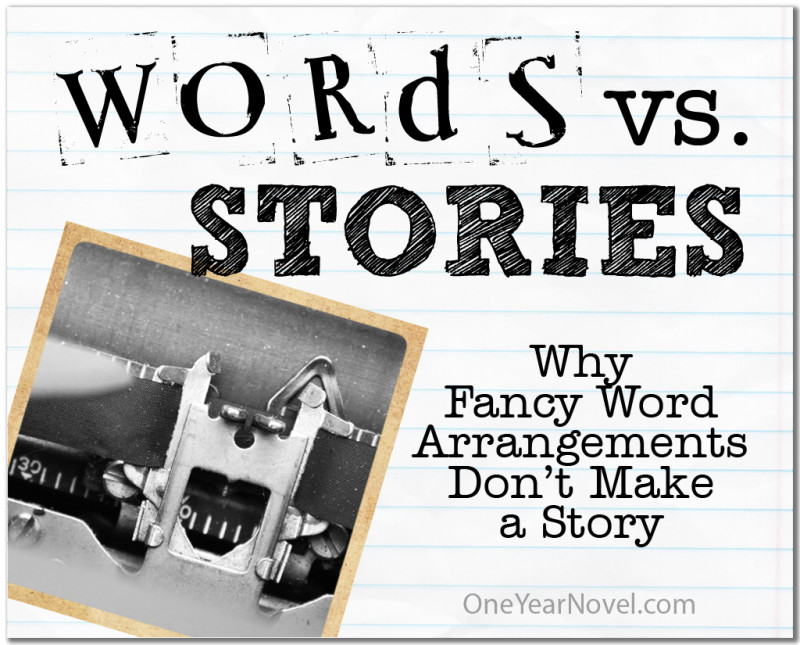How to Make Your Critique Group Genuinely Helpful
This is the first in a short series I’m going to do on making a critique group take off. But before I start in on how to make critiques…
Why Join—or Start—a Critique Group?
Most writers understand how important good feedback is to improving a manuscript. We need beta readers to point out problems—and even strengths—in our work. But critiquing is not just about making a story better. It’s about making ourselves better. Critiquing is critical to the development of any writer.
Yes, receiving feedback will help you to see your work-in-progress more clearly. But giving feedback might be even more important. Developing good critique skills teaches your mind to analyze story elements. It teaches you to sift the beautiful from the mundane. And that training—sharpened in the process of helping someone else—will carry over into your own writing.
The problem, for many writers, is not unwillingness to critique, but lack of opportunity. Good critique groups can be hard to find. So how are you supposed to do all this critiquing without a group?
One Year Adventure Novel (OYAN) students may of course use the OYAN Student Forum. But critiques through the OYAN critique boards, though helpful, can never be as rigorous as those given in a face-to-face meeting. The most benefit you can get would be from joining a live group that meets at least once every month.
If you can’t find a group, my advice is to start one. Even if your group starts out with just two people, you will still find it helpful (though three or more people will make for a better critique dynamic.)
Nuts and Bolts
• Meet often. Once a week is ideal. Once a month is still very helpful.
• Allow 2–3 hours for each session. Good critiquing takes time.
• Socialize first. Plan on spending 15–20 minutes at the beginning of each meeting chatting and catching up on life. This is going to happen anyway, since it is part of human nature. More importantly, it will help you see each other in a larger context. The better you know each member, the better your feedback will be.
• Bring food! Eating is an important part of letting people into your life and will create a bond. You don’t have to make meals. A bowl of microwave popcorn is sufficient. Home-baked brownies are even better. The group I’m part of sometimes has little more than a bag of skittles, though members routinely bring delicious baked goods. Nothing says “I respect you as a writer” like warm chocolate chip cookies.
• Begin on time. Start the actual critiquing no later than 20 minutes after the meeting begins.
• Invite writers, or at least people who are interested in writing. I don’t mean that everyone in the group has to be constantly churning out pages of prose. But including someone because they are an avid reader does not necessarily mean they will be a great fit for your group.
• Create boundaries. Time and page count limitations will make everyone more comfortable. You don’t have to be rigid about these, but it’s a good idea to agree on some guidelines upfront. Maybe 10 pages is fine, but 20 is too much. Maybe you need to use an egg timer to make sure you don’t spend the whole two hours on one person’s excerpt. Maybe you need to always end at 9:30. Whatever the boundaries are, make sure everyone is comfortable with them.
• Be consistent. Scheduling conflicts are inevitable, but critique groups work best when they happen in the same place at the same time with few interruptions or missed sessions.
Here There be Dragons (Things to be Wary of)
MR. JERK-FACE
This person delights in pointing out how stupid everyone else’s work is. He comes with a sharpened pen and a belligerent attitude, but never with anything of his own for critique. (The group is of course too amateurish to offer him anything of value.) He is condescending and hostile. He tears down because it makes him feel better about himself, and he will destroy your group if you don’t ask him to leave.
That said, not every blunt or harsh critic is a Mr. Jerk-Face. Some people just have very direct, and even insensitive, personalities. Often these people make great additions to a writing group; they may be the only ones willing to say what you really need to hear.
LACK OF HONESTY
Some groups are artificial. Members try so hard to encourage each other that they fail to point out genuine flaws. This helps no one. In fact, it’s worse than not being in a group at all, because it facilitates a feeling of unfairness. Members eventually get the idea that their work is not the reason they aren’t getting published. They start believing that it’s not the fault of their prose or their story lines or their submission process. Instead, the problem lies with biased publishers, an unfair industry, or with the sad decline of a favored genre.
PRETENSE
Writers who pretend to know everything are dangerous. No one has all the answers to every manuscript flaw. I’ve watched inexperienced writers give solutions based on misunderstood principles and conjecture. This really hurts those receiving the feedback if they try to fix something based on bad advice.
Which is not to say that youth or inexperience disqualifies you as a critic. Just speak from what you know (such as how a story affects you), rather than from what you don’t know (“All science fiction editors are prudes!”). It is much better to say, “I don’t know how to fix this, but I was bored from pages 7 to 9” than it is to give a diagnosis from ignorance.
DISCOURAGEMENT
The great-granddaddy of writing monsters, discouragement, is the ultimate dream-killer. It’s what makes Mr. Jerk-Face such a threat. But discouragement usually wins through attrition, not outright assault. Dreams are postponed, goals delayed, books left unwritten not just because “life happens,” but because we suspect our work is inferior and will never be good enough. Discouragement whispers to us that we can’t be rejected if we don’t submit. Better to polish that short story a 17th time than send it to an online journal. Better to hide from the world than be crushed by it.
The antidote to this is a supportive community. Every writer in your group should also be a cheerleader for every other member. Small successes—such as hearing that one or two other writers truly value your work—can make all the difference in whether a writer keeps writing.
Beyond this, groups should prod each other into submitting their articles and short stories and novels. Remind your group that rejections are training bruises. Bad reviews are battle-scars.
Offer community rewards for individual successes. When I sold the Legends of Tira-Nor series, the group I was in threw a party. Their happiness was a mark of their investment in my work.
You can do something similar. For instance, offer to buy dinner (or ice cream) for the first person to publish a short story, with the tab paid by the other members. The reward doesn’t have to be huge; it just needs to communicate your investment in each other’s work.
Success is often contagious. But your dedication to each other will be more effective than anything else at keeping discouragement at bay.
Next week I’ll offer suggestions about how to give and receive feedback in a live setting.
…
Have you ever been in a live critique group? To what do you credit its success or failure?




Nice blog, Daniel. My first writing group was at the library and you described what happened there in this post (Mr. JF was present!) I waited a few years until I met some fellow writers at a writing conference who were local and we have been meeting for a little over a year now. It’s a fantastic experience. Two months in, we all joined a writer organization called Word Weavers and have enjoyed being part of a not-for-profit organization. I’ve found I enjoy the challenge of critiquing in a positive manner and hope to grow up as a writer and become an editor some day! Thanks for your excellent insight.
I’ve run int a “MR. JERK-FACE” online. He hadn’t even written anything yet but seemed to think that it was okay to make his critique of a chapter dripping with disdain, completely condescending and anything that started out as a complement ended up as a back handed one.
One such example:
(This is on chapter four.)
“You don’t seem to have any problems with characterization … yet then bla blab about how characters need to gow for about 4-5 paragraphs. Jerk! It’s way to early for much of that, there’s some but jez it’s chapter frekn’ four. !@#
I also hate it when a critic while well intended, instead of giving good advice gives a “suggestion” on how to re-write a paragraph by … re-writing it in their writing style. Um, NO. I make my self ignore what they wrote, then go look at that paragraph and see if the sentences need to be moved around. At least thats why I think they were going for, clarity right? if not -shrug- oh, well.
Just is bad are teh ones that do this:
“This is wonderful, I can’t find anything wrong. (Yay if its true?) I’m also thinking at teh same time they might be greener then i am … and unable to spot anything. >.< there's always a typo or coma misplaced. I know there is as typos are evil, they crawl in when you're not looking. xD
I thought i corrected all the “the” typos I cross my heart they aren’t in any edited chapters.